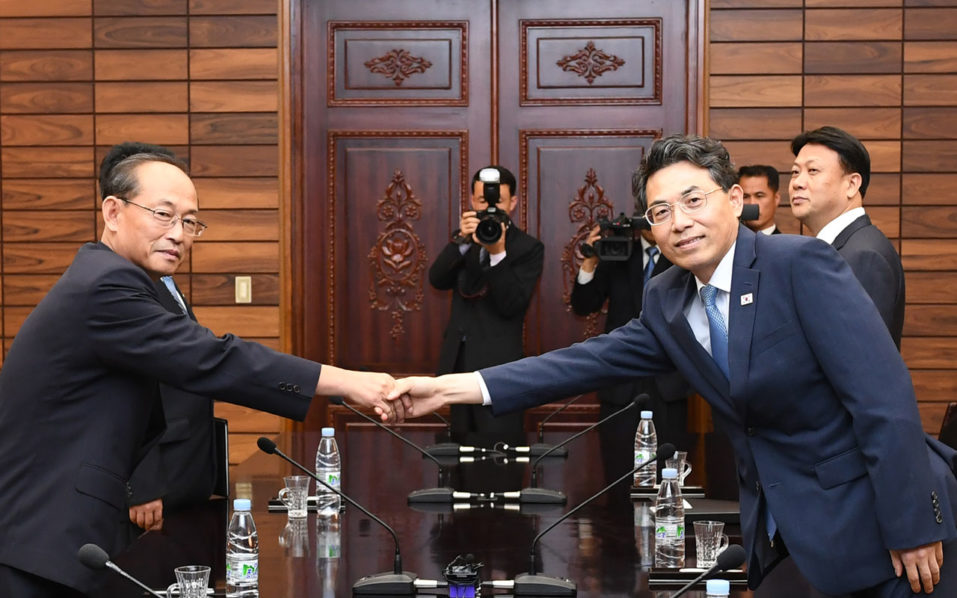
North and South Korea held talks on Thursday on establishing roadways to run across their border — part of the initiatives agreed between their leaders to forge closer ties.
South Korea’s Moon Jae-in and the North’s Kim Jong Un agreed to a broader plan to re-connect or newly establish railways and roadways between the two countries in a landmark summit held in April.
Linking the transport systems of the two Koreas will require the modernising of the impoverished North’s ageing and crumbling roadway infrastructure.
Officials who met at the border on Thursday to hammer out details chose two routes along the peninsula’s western and eastern coasts for the first-phase modernising works, according to a joint statement released by the South’s government.
One will connect the South’s eastern border county of Goseong with the North’s major eastern port of Wonsan and the other will run between the North’s western city of Kaesong and the capital Pyongyang, said the statement.
The joint “field research” on the routes will begin in early August, it added.
The agreement came two days after the two Koreas held similar talks on connecting the railways running across the border.
The two sides then agreed to conduct a joint-study “at an early date” on modernising the railways — originally built by Japan in the early 20th century but left to crumble for decades after the 1950-53 Korean War resulted in the division of the peninsula.
Linking the transport infrastructure of the two countries would give trade-dependent South Korea — the world’s 11th-largest economy — a land route to the markets of China, Russia and on to Europe.
But doing so would be a huge upheaval to the status quo on the peninsula: there has been no direct civilian communication between the countries since their division was sealed by the 1953 armistice that ended the Korean War — not even by post.
Despite the diplomatic thaw, with summits between the North’s leader Kim Jong Un and both the South’s President Moon Jae-in and Donald Trump of the US, Pyongyang remains the target of heavy sanctions over its nuclear and missile programmes.
[ad unit=2]



